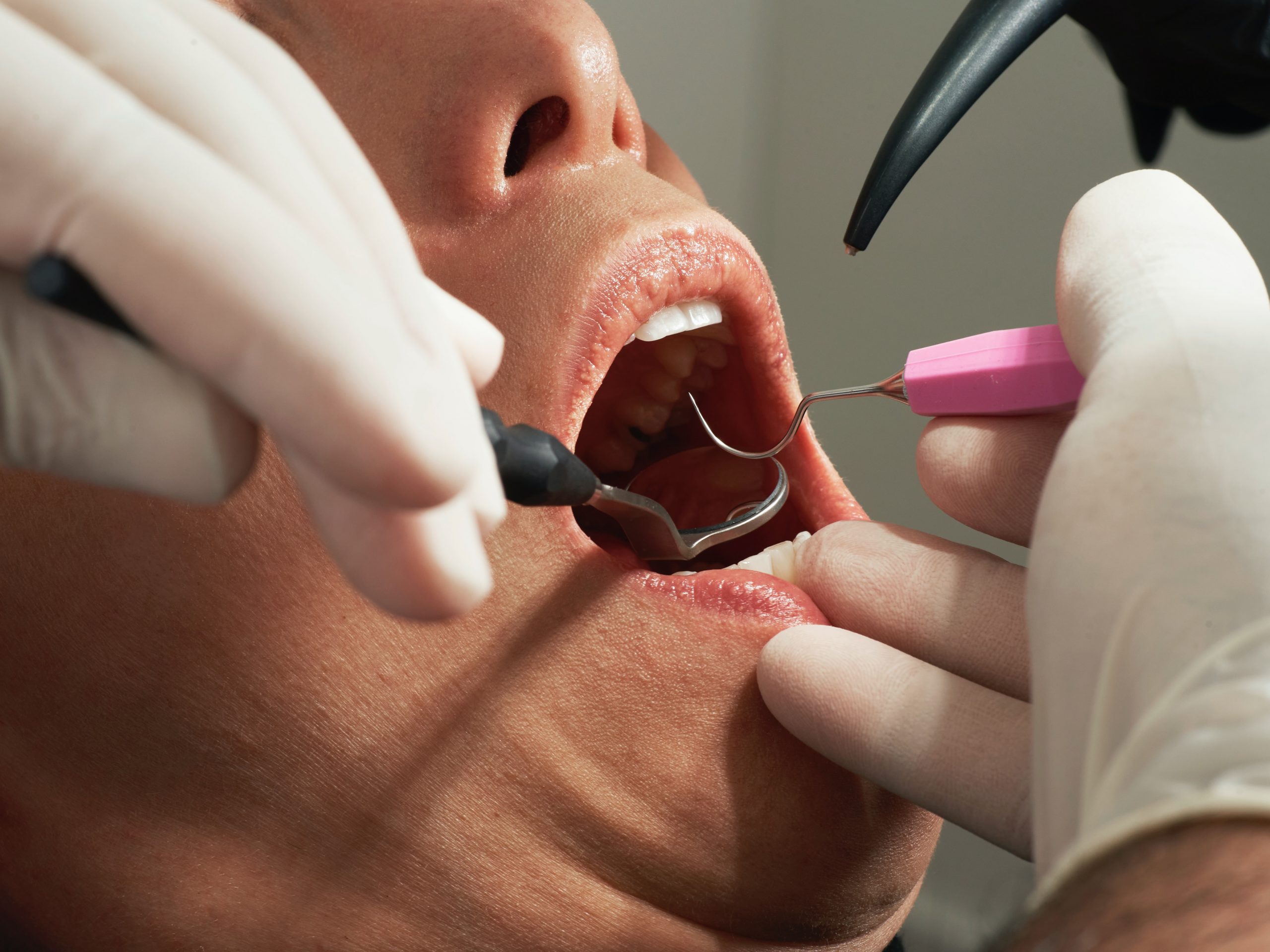Dental implants are a typical tooth replacement option. Tooth loss can be caused by various factors, including poor dental hygiene, plaque and tartar buildup, tooth decay, and gum disease, to name a few. Dental implants are artificial tooth roots that are surgically implanted into the jawbone to provide a permanent, firm foundation and structure for a new tooth. An implant is unique among tooth replacement methods in that it replaces the tooth and the root. A competent dentist may advise alternate solutions if your gums aren’t healthy enough to sustain the dental implant.

An overview of gum diseases
Gingivitis and periodontitis are two of the most frequent gum disorders. Gingivitis is a bacterial infection that causes gum inflammation and can progress to periodontitis if not treated. The region where your gums join the bottom section of your teeth is termed a sulcus. It’s big enough for food and plaque to get lodged in there and cause an infection in your gums. Gingivitis can create a gap between the gums and the teeth if you don’t get your gums examined or treated, which can lead to harm to the bone supporting the tooth and soft tissue.
In adults, gum disease is the major cause of tooth loss. It’s also linked to an increased risk of heart attack, stroke, coronary artery disease, and other systemic diseases like diabetes and even cancer.
Gum disease can appear in a variety of ways, including:
- Gums that are red, swollen, and sensitive and bleed readily.
- Gumline receding.
- You have pus between your teeth.
- Do you get the feeling that your teeth are loose?
It is possible, however, to develop periodontal disease without any warning signs or symptoms. That’s why it’s critical to not only maintain proper oral hygiene but also to visit your dentist at least twice a year. The sooner you detect the condition, the higher your chances of quickly combating it and avoiding harmful consequences such as receding gums or, worse, tooth loss.
What exactly are implants?
Missing teeth may be detrimental to your health and cause significant lifestyle adjustments. Dental implants can help with this. Dental implants are the most effective way to replace a lost or damaged tooth or teeth. An implant is placed in your mouth to function as the root of your tooth, and then a crown, bridge, or other forms of natural-looking repair is placed on top of it. When it’s all said and done, no one will know you’ve ever been missing a tooth.
This surgery is highly recommended because of the several advantages it provides, including:
- Bone loss prevention.
- Increasing the stability and longevity of the product.
- Making it easier for you to chew and talk.
- Completely natural appearance.
If you have gum disease, will you lose your teeth?
Periodontal disease, as previously stated, is the major cause of tooth loss in adults. However, just because you’ve been diagnosed with gum disease doesn’t mean you’ll lose a tooth. You may adopt treatments and practices to correct the infection and avoid tooth loss if you address the problem quickly (the sooner, the better). The delicate tissue of your gums is severely damaged, resulting in tooth loss. Bacteria can spread deeper into your mouth and harm the bone that supports your teeth due to a lack of healthy soft tissue.
Is getting a dental implant possible if you have gum disease?
The answer is simple: no. To receive a dental implant, you must have healthy and strong gums. Gum disease weakens and destroys this tissue and bone, as previously stated. Your gum tissue and jawbone may not be strong enough to sustain an implant even after you’ve treated the condition. Your jawbone must be sturdy and broad enough to safely support the implant during implant treatment. The implant and ultimate repair must be completely surrounded by gum tissue.
What happens if I get gum disease after receiving a dental implant?
Your risk of having gum disease does not go away if you receive an implant. You might get peri-implantitis, a type of gum disease, if you don’t take adequate care of your teeth.
Peri-implantitis is a bacterial infection that affects the gum tissue and bone around a dental implant. Among the signs and symptoms are:
- Bleeding
- Breath problems
- Implant loosening
Peri-implantitis can cause your implant to fail and fall out altogether in the worst-case scenario.
Finally, dental implants cannot induce gum disease since a certified dentist will only evaluate you for the operation if your gums are healthy. An assessment is an initial step in evaluating you for dental implants. A dentist will perform a thorough mouth examination to determine if your teeth and gums are healthy enough for dental implants and if you are a good candidate. If not, a dentist will suggest other options for replacing your lost teeth or help you make your gums healthy enough for dental implant surgery.
Hey welcome to my blog . I am a modern women who love to share any tips on lifestyle, health, travel. Hope you join me in this journey!

Speak Your Mind